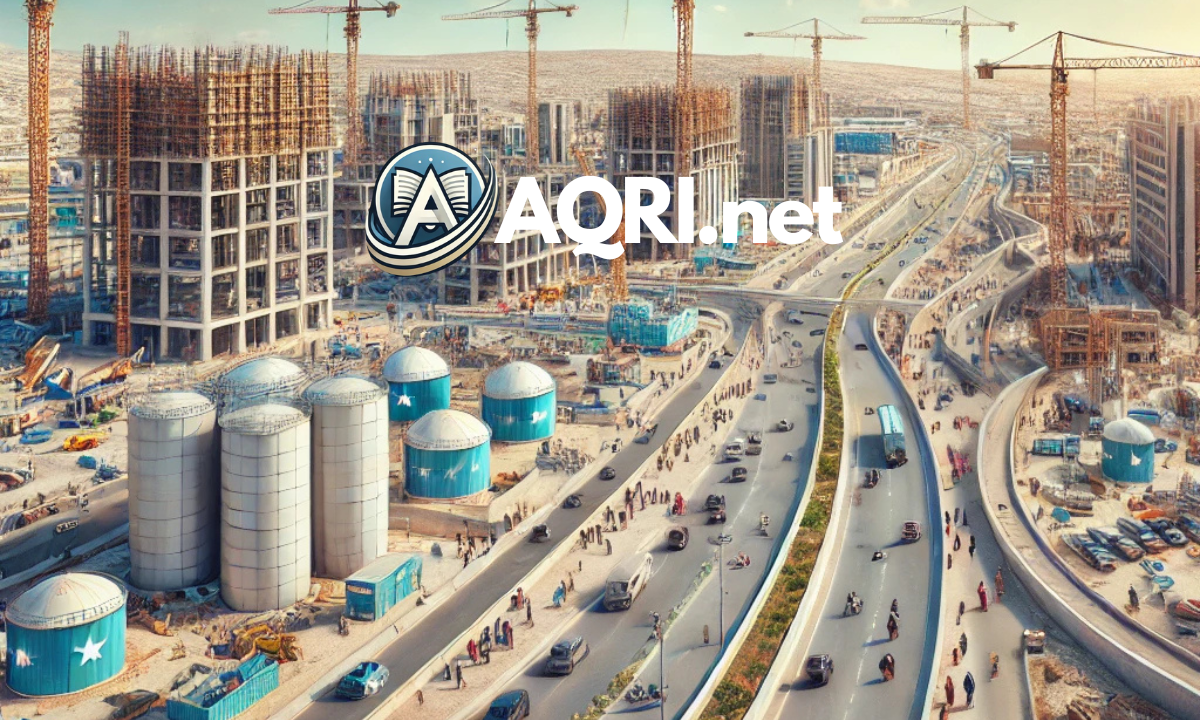Somalia’s Economic Reforms: A Blueprint for Regional Growth in the Horn of Africa
Mogadishu, Somalia (AQRI.net)In the bustling streets of Mogadishu, the signs of a nation on the rise are becoming evident. Somalia, long associated with conflict and instability, is taking bold steps to transform its economy and position itself as a regional leader in the Horn of Africa.
From modernizing its tax system to attracting foreign direct investment (FDI), Somalia’s government is implementing sweeping reforms aimed at sustainable growth. These changes are not just reshaping Somalia’s economy but are also altering the dynamics of regional trade and cooperation.
A New Era of Taxation and Fiscal Policy
Somalia’s economic revival began with the government’s decision to overhaul its outdated taxation system. The Federal Government of Somalia introduced reforms that include digitizing tax collection and increasing transparency. These measures have already resulted in a 20% rise in domestic revenue over the past two years.
“These reforms are critical to our vision for economic independence,” explains Abdirahman Duale Beileh, Somalia’s Minister of Finance. “We aim to reduce reliance on international aid and establish a self-sufficient economy.”
Infrastructure Development as the Backbone
One of Somalia’s most ambitious projects is the modernization of key infrastructure, including roads, ports, and airports. The Port of Mogadishu, for instance, has seen a significant increase in capacity, becoming a vital gateway for goods entering and leaving the region.
The construction of the Berbera Corridor—a strategic trade route connecting Somalia to landlocked Ethiopia—has further cemented Somalia’s role as a hub for regional commerce.
Investment in Agriculture and Natural Resources
Agriculture, which accounts for 75% of Somalia’s GDP, is also getting a boost. Programs aimed at improving irrigation and providing subsidies to farmers are enhancing productivity. Additionally, exploration of untapped natural resources, including oil and gas, is attracting international investors.
“These resources, if managed responsibly, could be a game-changer for Somalia,” notes Ali Haji Warsame, an economist based in Mogadishu.
Challenges Ahead
Despite these advancements, Somalia faces significant challenges. Security remains a primary concern, with insurgent groups posing threats to development projects. Additionally, the country must address issues of corruption and ensure equitable distribution of resources.
However, analysts believe that with consistent reforms and international support, Somalia could become a model for economic recovery in conflict-affected regions.
A Regional Blueprint
Somalia’s progress is already inspiring neighboring countries in the Horn of Africa to pursue similar reforms. The country’s integration into regional economic frameworks like the African Continental Free Trade Area (AfCFTA) could further bolster its economic potential.
As Somalia continues to rebuild, it is proving that resilience and strategic planning can lay the foundation for lasting growth. For the people of Somalia, this marks the beginning of a new chapter—one where the nation is not just surviving but thriving.


Comment